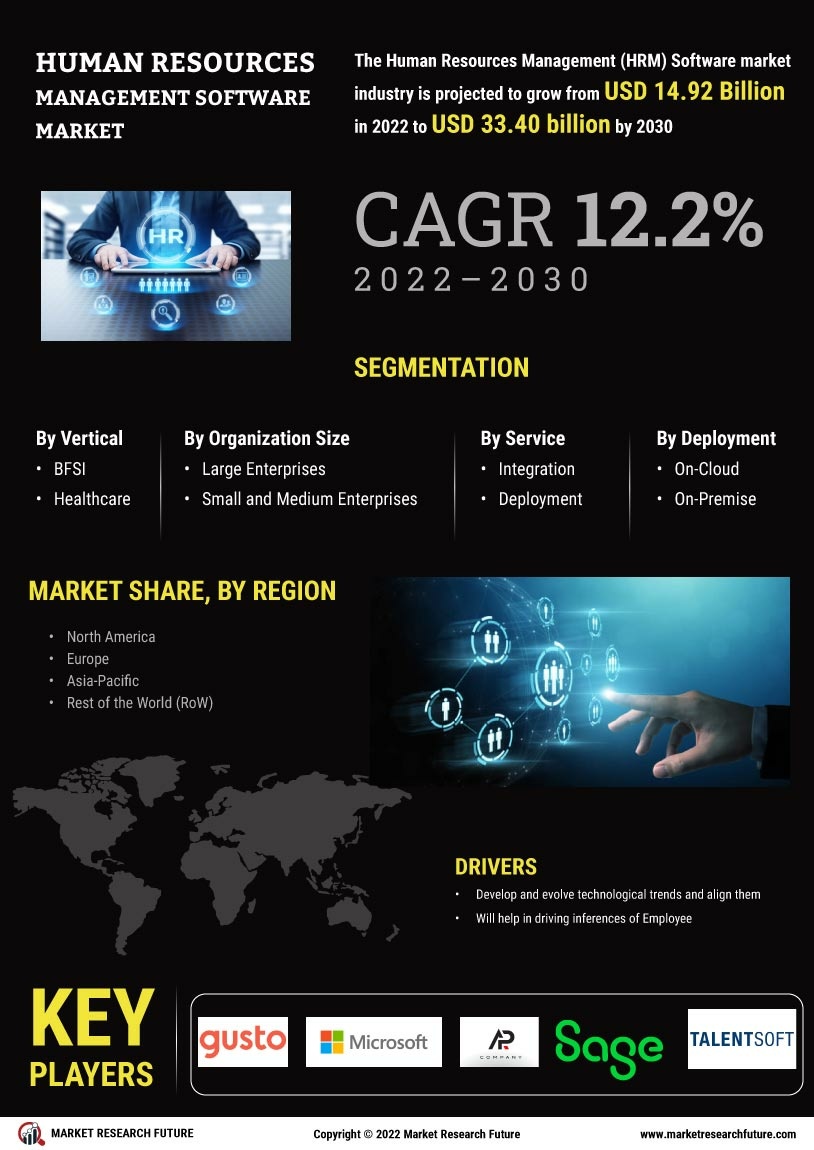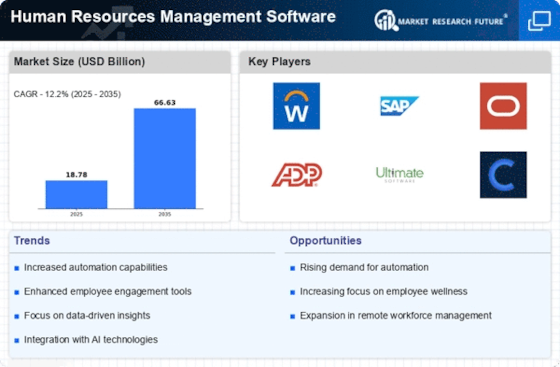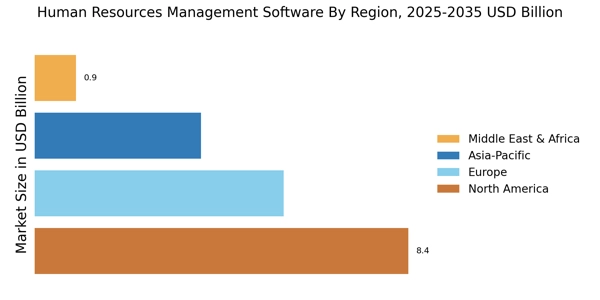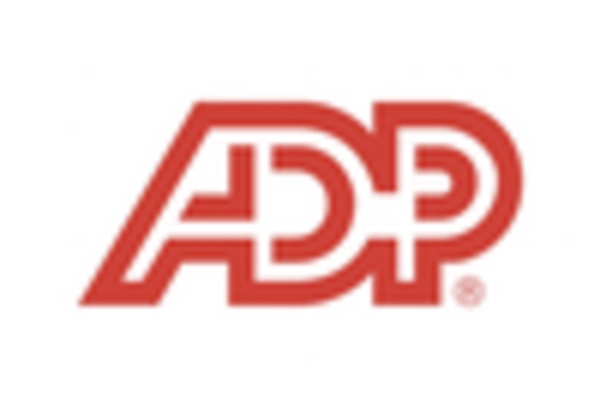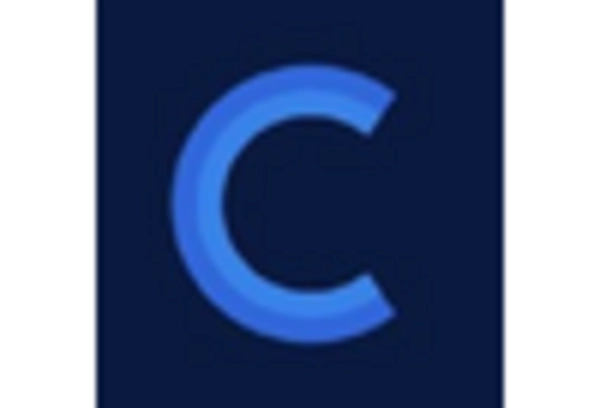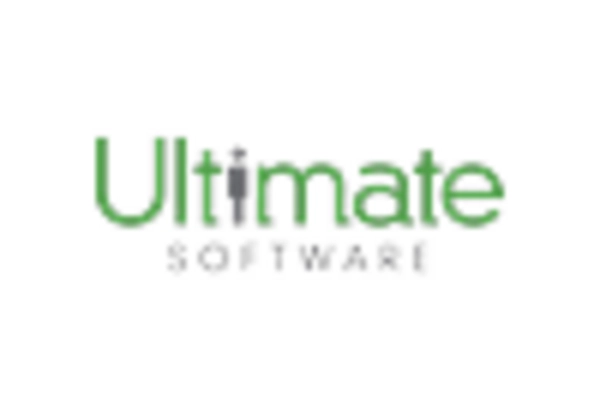Focus on Employee Well-being
The Human Resources Management Software Industry is increasingly prioritizing employee well-being as a core component of HR strategies. Organizations are recognizing that employee health and satisfaction directly impact productivity and retention. As a result, HR software is evolving to include features that promote mental health resources, wellness programs, and work-life balance initiatives. Recent surveys indicate that companies investing in employee well-being initiatives see a 20% increase in employee engagement. This trend suggests that HR software must not only manage administrative tasks but also foster a supportive work environment. The integration of well-being metrics into HR platforms is likely to become a standard expectation, reflecting a broader cultural shift towards holistic employee care.
Rise of Remote Work Solutions
The Human Resources Management Software Industry is experiencing a notable shift towards solutions that facilitate remote work. As organizations adapt to flexible work arrangements, HR software is increasingly incorporating features that support virtual collaboration, performance tracking, and employee engagement. According to recent data, approximately 30% of the workforce is now engaged in remote work, necessitating tools that can effectively manage distributed teams. This trend is likely to drive demand for HR software that offers seamless integration with communication platforms and project management tools, thereby enhancing productivity and employee satisfaction. The ability to monitor employee performance remotely and provide real-time feedback is becoming essential, indicating a significant evolution in HR practices.
Integration of Cloud Technology
The Human Resources Management Software Industry is experiencing a significant shift towards cloud-based solutions. The adoption of cloud technology allows organizations to access HR software from anywhere, facilitating real-time updates and collaboration. This transition is particularly relevant as businesses seek to enhance operational efficiency and reduce IT costs. Recent reports indicate that cloud-based HR solutions can lower operational expenses by approximately 30% compared to traditional on-premise systems. Furthermore, the scalability of cloud solutions enables organizations to adapt their HR software as they grow, accommodating changing workforce needs. This trend suggests that the future of HR management will increasingly rely on cloud technology to deliver flexible and cost-effective solutions.
Growing Demand for Data Analytics
The Human Resources Management Software Industry is witnessing a surge in demand for data analytics capabilities. Organizations are increasingly recognizing the value of data-driven decision-making in managing human capital. HR software that offers advanced analytics tools enables companies to track employee performance, predict turnover rates, and assess the effectiveness of training programs. Recent statistics suggest that organizations utilizing data analytics in HR processes can improve retention rates by up to 25%. This trend indicates a shift towards a more strategic approach in HR management, where data insights inform recruitment strategies and employee development initiatives. Consequently, the integration of analytics into HR software is becoming a critical differentiator in the marketplace.
Regulatory Compliance and Risk Management
The Human Resources Management Software Industry is increasingly influenced by the need for regulatory compliance and risk management. As labor laws and regulations become more complex, organizations are seeking HR software that can help navigate these challenges. Compliance features, such as automated reporting and policy management, are becoming essential components of HR solutions. Recent data indicates that companies that utilize compliance-focused HR software reduce the risk of legal penalties by up to 40%. This trend underscores the importance of integrating compliance tools within HR systems to ensure adherence to labor laws and regulations. As organizations strive to mitigate risks associated with non-compliance, the demand for robust HR software solutions is expected to grow.
